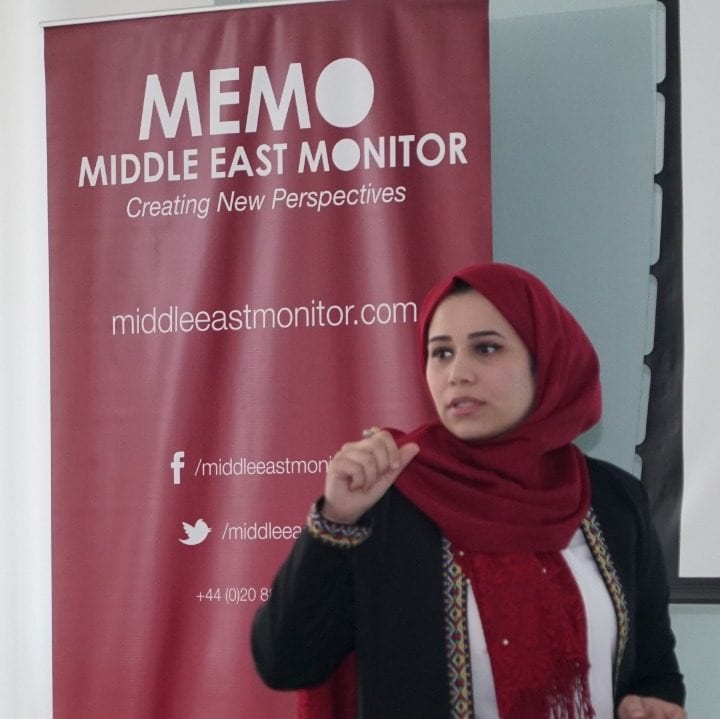Cuba’s President Miguel Díaz-Canel has attended the IV Patria International Colloquium at the University of Havana. The president’s particular attendance at a lecture on “Media Lessons from the Palestinian Genocide: Propaganda, Silencing and Informational Resistance” underscores the importance of solidarity movements in Cuba’s foreign policy. Diaz-Canel has long been an advocate for the island’s continued engagement with global struggles for justice, and his participation in the event reflects Cuba’s ongoing commitment to these causes.
The Colloquium was attended by more than 400 delegates from some 50 countries. “Participants pledged to establish a permanent Southern Network to continue confronting cognitive warfare, disinformation campaigns, media manipulation and psychological warfare promoted by imperialist actors,” said the organisers.
The lecture in question touched on the complex dynamics of media manipulation and informational warfare surrounding the Palestinian struggle. It attracted significant attention, particularly given Cuba’s long-standing position on international solidarity with Palestine.
Díaz-Canel not only reaffirmed his country’s support for Palestine, but also highlighted the necessity of information and truth in the battle against oppressive regimes.
His remarks echoed Cuba’s own battle against media manipulation by powerful states and the importance of fighting for an unbiased global narrative, one that truly reflects the struggles of people like the Palestinians.
The lecture delved deep into the role of media in shaping narratives around the Palestinian genocide, specifically focusing on the ways in which propaganda is used to silence Palestinian voices and manipulate public opinion. A central theme was the concept of informational resistance, the efforts by Palestinian activists, journalists and citizens to counteract biased media portrayals and present an unfiltered view of the ongoing human rights violations in the region.
READ: New Egypt proposal to restore Gaza ceasefire
Through the lens of media control, the lecture illustrated how international coverage of the Palestinian plight is often distorted, minimised or silenced, particularly when it challenges the interests of powerful states and corporations. This resonated deeply with Cuba’s own history of resisting media manipulation, particularly in the context of its opposition to imperialism and its advocacy for marginalised peoples worldwide.
Cuba’s relationship with Palestine is rooted in shared experiences of resistance against imperialism and colonialism. Ever since the 1959Cuban Revolution, it has supported Palestinian sovereignty consistently and condemned the Israeli occupation. Cuba’s position has been one of vocal opposition to the normalisation of relations between Israel and other Latin American countries, often framing the Palestinian cause as part of a broader struggle for justice and self-determination.
Indeed, Cuba is one of just two Latin American nations without ties to Israel, Venezuela being the other after it ended its relationship in 2009.
When the UN General Assembly voted to partition Palestine in 1947, Cuba voted against the resolution, “Because it could not be a party to the coercion of the majority in Palestine.”
Since 1992, Israel has systematically voted alongside the US against all UN General Assembly resolutions condemning the American embargo on Cuba. In the latest vote on 2 November, an overwhelming majority of 187 countries voted to lift the embargo and two voted against: the US and Israel.
This stance has led to frequent diplomatic friction between Havana and Western powers, particularly the United States, which continues to exert significant influence over global discourse regarding the Israeli-Palestinian conflict. Cuba, however, remains unwavering in its support for the Palestinian people, advocating for international recognition of their rights and the establishment of a Palestinian state.
Cuba is the only country in the world where the President leads a march past the US embassy with thousands of people in solidarity with Palestine while shouting support for the Palestinian liberation struggle.
Cuba & Palestine are united in their courage to confront the empire! pic.twitter.com/CmpbijHsAv
— Manolo De Los Santos (@manolo_realengo) November 24, 2023
The Cuban government’s consistent advocacy for Gaza has attracted both praise and criticism. President Díaz-Canel has faced sharp reactions from pro-Israel groups and some Western governments due to his outspoken rhetoric condemning Israeli military actions and the humanitarian crisis in Gaza. In 2023, for instance, after the start of the latest Israeli aggression against the Palestinians in the Gaza Strip, Cuba’s foreign ministry issued a statement unequivocally condemning the Israeli air strikes and the killing of Palestinian civilians.
In response, Western media and political leaders often accuse Cuba of supporting violence or disregarding Israel’s right to self-defence. However, Cuban officials argue that their stance is rooted in principles of anti-imperialism and human rights, emphasising that their solidarity with Gaza is a call for an end to oppression, not an endorsement of violence.
READ: Cuba and Palestine: A brotherhood forged in struggle
The views expressed in this article belong to the author and do not necessarily reflect the editorial policy of Middle East Monitor.


![Cuba’s President Miguel Díaz-Canel at the IV Patria International Colloquium, March 2025 [Photo: Presidencia Cuba on X]](https://i0.wp.com/www.middleeastmonitor.com/wp-content/uploads/2025/03/485150496_961845062771181_6955454922726863061_n-1.jpg?fit=1199%2C800&ssl=1)








